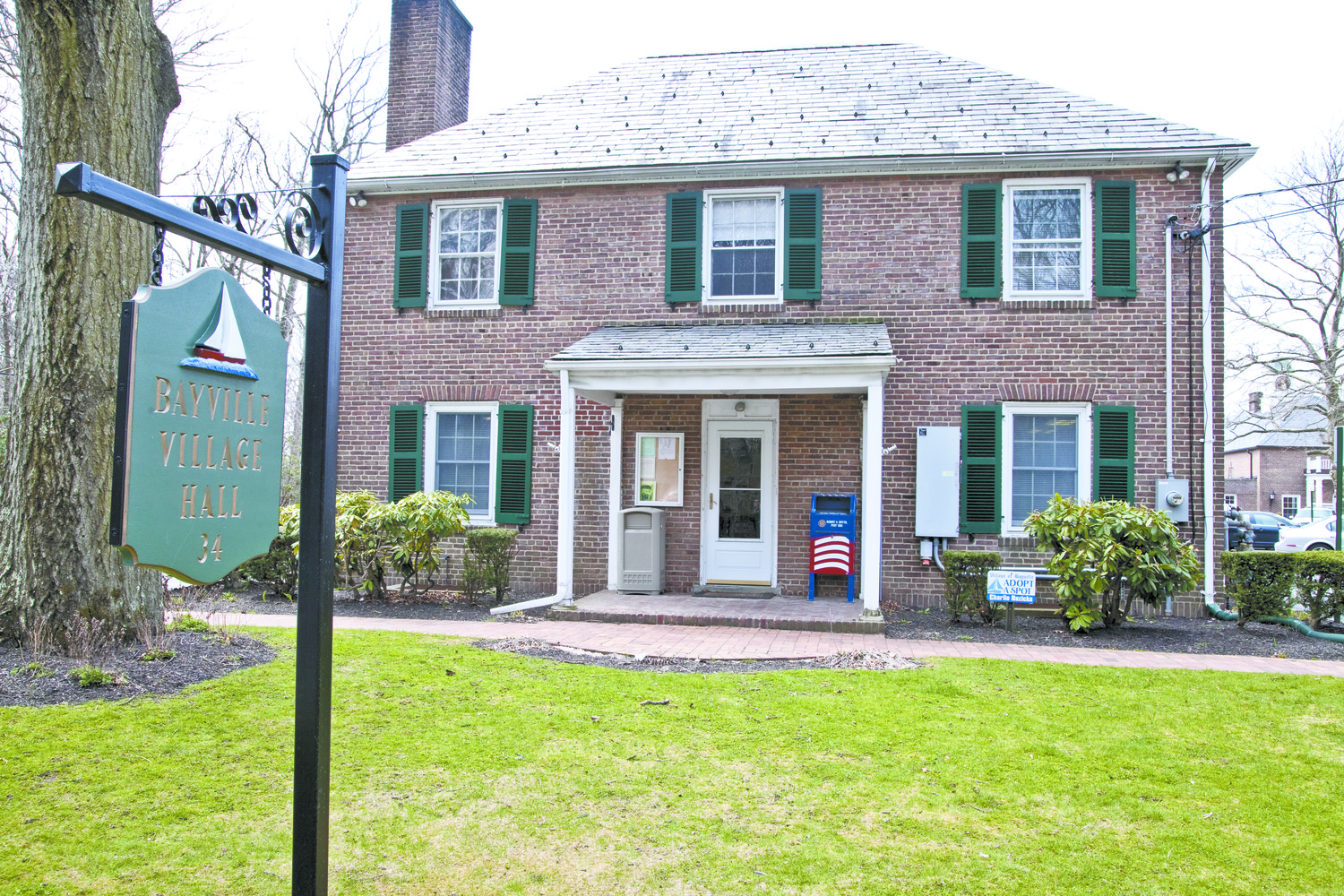Single stream recycling to begin in Bayville
Starting Nov. 1, a Single Stream Recycling program will take effect in the Village of Bayville. Under the new program, residents will no longer have to separate, flatten or tie up their recyclables. Instead all items will go directly into one blue recycle container to be picked up curbside on the scheduled recycling day. The goal of the program is to reduce waste (and by extension cost) and also to encourage sustainability.
What this change will mean for the community was the subject of a public information meeting held at Bayville Intermediate School on Sept. 26 by the Bayville Environmental Conservation Commission.
“I could talk about garbage all night,” said Will Flower, the general manager of Winters Bros. Waste Systems, which is contracted to operate the Village of Bayville’s recycling program.
As the featured speaker, he had plenty to say about garbage to the 50 or so residents that attended the meeting. Stressing that there are changes all the time in recycling Flower said that it’s important to stay educated. That’s because when people don’t put the right things in the right bin, it can have consequences for the community in terms of cost and conservation.
Dave Gugerty, the chair of BECC, believes Single Stream Recycling will encourage more people to recycle. It’s easier, he reasoned because people will no longer have to separate the recyclables. “We’re passionate about conservation,” he said, adding that the program is good for the environment.
Additionally, a well-run recycling program can save taxpayers money. According to Flower, regular garbage costs $74.45 a ton to process. The cost of recycled garbage is only about $30 a ton. So, a healthy recycling program can have financial benefits for the community. “It’s a win win,” says Gugerty. “We want to bring it up by about 20 percent; that’s the goal.”
Both Gugerty and Flower stressed that the program’s success will depend on residents, who need to know the rules of recycling and follow them. That comes with education.
A table at the front of the room displayed items that can be recycled and others that can’t. Things like plastic bottles, milk containers, detergent bottles and any plastic with a 1 or 2 symbol can be recycled. Metal cans, aluminum containers and foil can be recycled too, but must be rinsed and cleaned. Paper, newspapers, magazines, cardboard and junk mail can also be recycled.
The items that can’t be recycled included plastic grocery bags, light bulbs, Styrofoam and dry-cleaning bags. When Flowers mentioned that glass bottles and jars would be banned from the Single Stream Recycling program, several attendees spoke up saying they felt the exclusion of glass would undermine the recycling efforts.
Flowers explained that currently there is no real market for recycled glass since it’s difficult to sort by color and is costly to haul. On top of that, he said glass frequently damages recycling machinery. Residents were encouraged to bring NY-refundable glass bottles to the bottle return section of their local grocery store or at a drop off center. Bottles that aren’t refundable should be disposed of in the trash.
Some residents still had concerns about the no glass rule to which Gugerty mentioned the BECC would be open to finding an alternative for glass. He even agreed to consider starting a lobbying effort to expand NY State’s “bottle bill,” which currently doesn’t cover sports drinks, juice, wine and liquor bottles, among others.
As the meeting wound down Gugerty had one last important bit of recycling advice. “Leaves are one of the weightiest things we throw out,” he said. In order for them to be sent for composting, they must be put in clear plastic bags and placed out front on a regularly scheduled recycling day. There is a 15-bag limit per household. When people properly recycle their leaves, they don’t end up in the dump where is costs more money to dispose of them. That’s a savings for the community.

 47.0°,
Mostly Cloudy
47.0°,
Mostly Cloudy 




